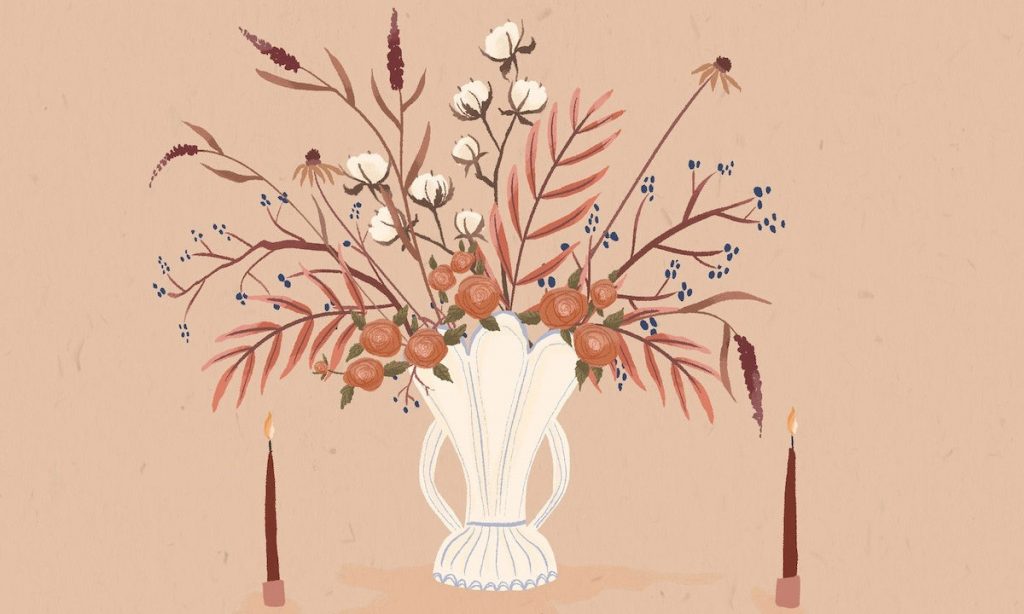If you follow me on Instagram you know that I’ve been on this kick recently of really trying to be a better listener. What follows is a parable that sums up why.
A few weeks ago, I heard a conversation between critically-acclaimed psychologist Harriet Lerner and shame researcher Brené Brown that piqued my interest with respect to listening.
In this conversation, Lerner anecdotally mentioned that every time she hosts a workshop about “How To Argue Better”, the courses fill up, overflow, and usually have to be expanded to accommodate all the enthusiasm.
Once, however, she tried to host a workshop on “How To Listen Better”, and she had to outright cancel it for lack of interest. I heard this and I thought, ‘Wow, that’s the heart of everything, isn’t it? Everyone wants to talk, but no one wants to listen.’ Does that sound about right?
No wonder we have the culture that we have! This is the plight of our human experience: that listening is essential, but it doesn’t come naturally to most people.
***

“Listen Better” was actually one of my New Year’s Resolutions for 2019, but I quickly abandoned it in favor of more measurable stuff, like running a marathon and finishing some Harvard courses online. (I guess I was ahead of the curve…)
With all this open time for contemplation recently (I’m writing this in the midst of the COVID-19 pandemic), I’m zeroing back in on the skill that evades me and so many of us, still.
I would love to see the culture get woke on listening– to make listening cool again. Or maybe it never was cool— but it sure needs to be. Now more than ever, and always.
One of the practices that has helped me work on becoming a better listener has been reminding myself daily of the below 3 mantras about listening. (I made them up, but you can fill in your own as it makes sense for you.):
1. Listen to hear, not to find a launchpad into what you’ll say next.
This is a key, self-explanatory point. We all are guilty of doing this. Half-listening, merely waiting for the other person to finish their story so that we can tell the group ours, and wanting to add our two cents is a very relatable experience.
It’s not that we are selfish or self-absorbed (though that may be true for some people!)– but rather that we are social creatures who are naturally fascinated with our own lived experiences. We want to share because sharing makes us feel seen.
We are all looking for connection and validation in our relationships, but unfortunately in the instance of waiting for someone to finish speaking so that *we* can talk, we forgot that mutuality is an essential part of this.
Relationships are a two-way street. They thrive best when we do our part on the listening side of things as well as the talking side. Does that make sense?
Aim to listen better. Listen to hear, not to find a launchpad into what you’ll say next.
2. Listen to understand, not to build your defense. (In the case of arguments.)
This second mantra is so, so important. Unfortunately, it’s much easier said than done.
This is especially true in the case of arguments. It’s natural that when we get into a disagreement with a friend, partner, parent, child, or colleague, that we want so badly to WIN and to PROTECT OUR OWN EGO that we naturally put up defenses.
When the other person starts speaking we quickly cut them off or zone out so that we can start building our own side of the case. (For example, if someone says, “You do that all the time!” your mind may start racing to create a checklist like “When? When did I do that? Give me an example!” Thus, you are no longer listening fully.)
The goal here is to subdue your own frustrations and simply listen to understand the other person. Think about what they are trying to tell you, not what you are trying to hear.
3. Listen like you’d want to be listened to.
Here’s a simple recipe for a happy, fulfilling life full of meaningful relationships: First, treat others as you’d want to be treated. Second, listen to others as you’d want them to listen to you.
This, despite what anyone will tell you, is true compassion. Actively listening better is compassion in its purest form.
Remember: everyone wants to be heard. Be the person who listens.
***
All of these mantras, of course, are easier to say than put into practice, but I’m working on it. I encourage you to do the same.
Ultimately, this kind of practice isn’t necessarily about being a bleeding heart or selflessly striving for self-improvement to benefit others. It’s not solely about beneficence: listening will also make your life easier!
When you try listening better, you slowly learn to stop reading things out of context.
Good listeners tend to take things less personally, evaluating words at face value like you might inspect a curious seashell you found on the beach. There’s no attachment to outcomes. You are simply there to learn and investigate. Let listening better be your main goal.
Not only will other people appreciate it, (consciously or unconsciously,) but your relationships will take on a new depth. To badly paraphrase Nietzsche, “Blessed are the folks who listen, for they get the better even of their blunders.”
***
Related: Boost Your Mood By Creating a Brag File.
“Self Care” vs “Self Comfort” (And Why You Need Both).

I stumbled across this today and I’ve actively been eyeballing all of these self-help reads! Thank you for the simplistic and easy point-of-views so folks like me can understand and implement a completely real and achievable game plan for our “life!”
My dearest friend sent me this, Link. Though she has told me so many times. I am blessed to have her care for me. But I am slow to learn.. Listening, is so important. Still learning after 69 years.
These 3 steps are so important. So listen,be grateful and learn.❤️
A dear friend also sent me this link. I continue to struggle with trying to be one up on disagreements with my spouse. Still learning at age 74.❤️